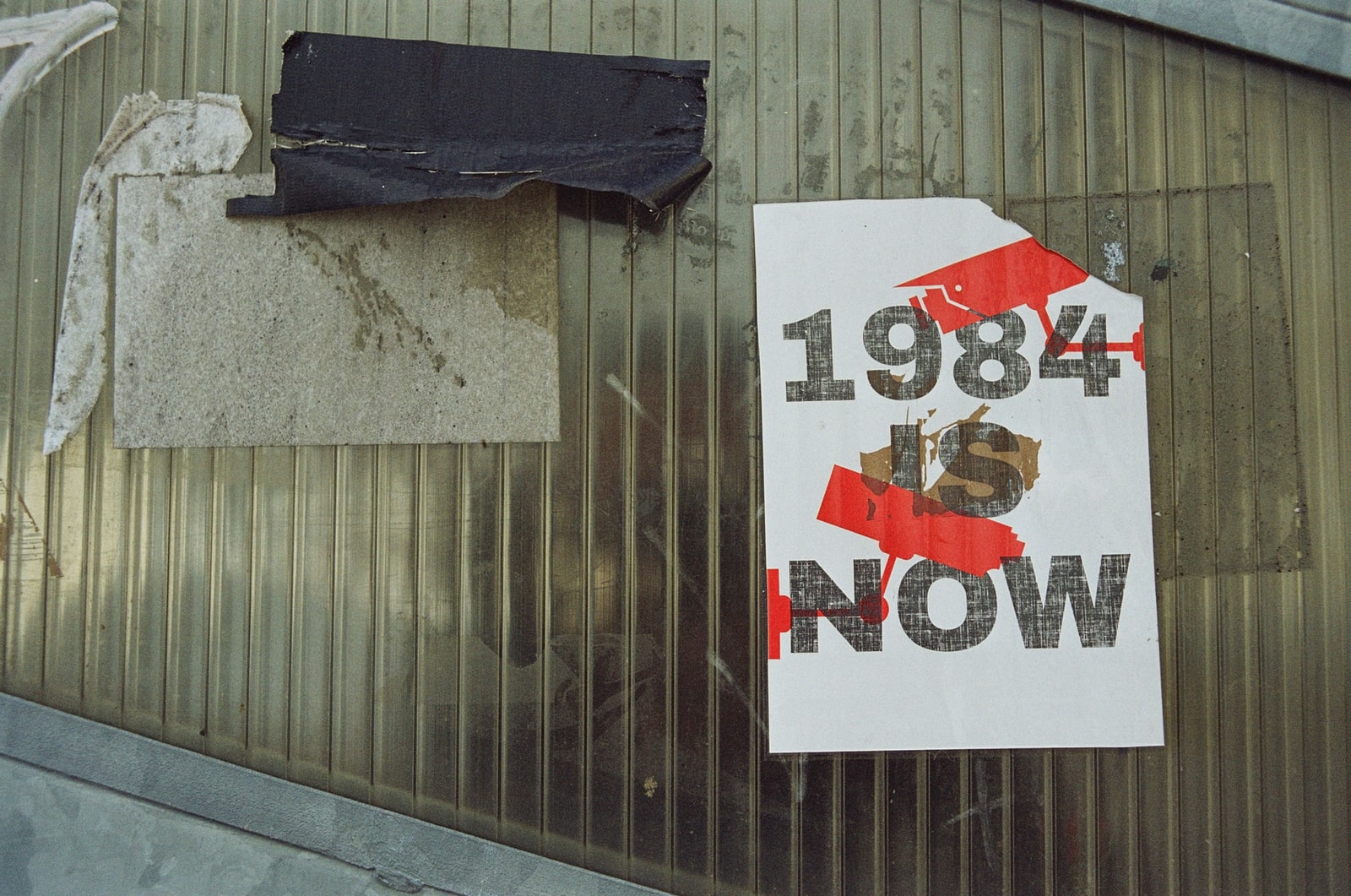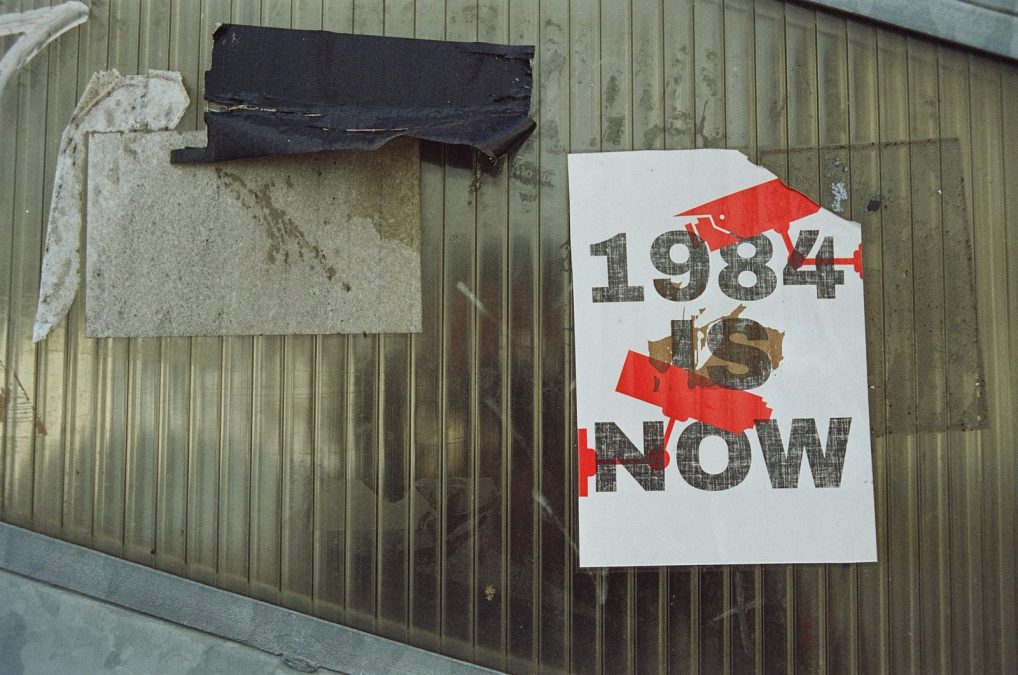
Martyn Percy: Ethical? (or, Tea and Sympathy Are Not Enough)
May 24, 2022
Rebecca Parnaby-Rooke: Disability in the Church
May 28, 2022If a Church values loyalty and reputation far more than truth and justice it cease to become trustworthy. The use of words – and their plain meanings – is what is at stake in an Orwellian world, and the Church of England now finds itself intoxicated on half-truths, misleading statements, PR-merchants and endless attempts to control its public appearance. In truth, this is bound to fail, as the CofE cannot be trusted, command confidence, or perhaps even enduring affection, if it is consistently found to be economic with the truth. We are at this point. This loss of authenticity is a one-way road to perdition.
Once authenticity is lost, public confidence, trust, respect and hope quickly evaporates. Clergy are joining Unions like Unite in record numbers. They can only be doing so because they lack basic human and employment rights at the hands of mercurial bishops and their whims. The lack of accountability, transparency and scrutiny in the CofE hierarchy means it can act as a despotic monarchy. Far too many Bishops behave like this.
No longer able to be shepherds, the CofE finds itself mostly led by wolves or donkeys. Few have moral courage. We also know that at the time of writing, one-third of the Bishops in the CofE have CDMs served against them. How many have “stepped aside from ministry”, pending the outcome? The answer is zero. The message to the rest of the clergy could not be clearer: one rule for you, another rule for them. There is systemic inequality.
And yet the CofE hierarchy will pontificate about climate change, poverty, injustice and ethical investment. One recent (sad) own-goal was the telling off the CofE gave business leaders for failing to have better gender and diversity representation in the boardrooms, and amongst the executives. The irony could hardly be richer. Which denomination opted out of compliance with the Human Rights Act of 1998 on the grounds that it might “force” churches to embrace equality on protected characters such as gender and sexuality? Yes, the Church of England. Once again, one rule for them, and another rule for the rest.
The upshot of this is the rapidly dwindling social, moral, spiritual and intellectual capital of the Archbishops and Bishops. What is the point of a church leader lecturing the rest of the nation on fairness, speaking out against bullying or corruption, or in favour of protections for workers, or advocating equality and rights? There is no point, surely, if the beam in your own eye is huge, and you are lecturing the rest of the population on remnant specks (Matt. 7: 1-5) in theirs. What is the moral and spiritual point of a Bishop, Archbishop or the NST straining the gnat, but swallowing the camel (Matt. 23: 24)? Why should anyone listen to Archbishops who say they will do something exhaustive and immediate about John Smuth QC or Jonathan Fletcher and their abuses, yet refuse to match any of these (sincerely-sounding) words with absolutely no action at whatsoever? If you cannot believe them, you should not trust them.
If the CofE wants to be trusted as a public service and servant of the people in what remains of this century – rather than becoming a members-only-sect – then we need a bold, radical and revolutionary reset. Alas, I cannot see the CofE reforming itself from the inside. It lacks the courage, expertise, moral will and intelligence to do so at present, and all the signs are that things may have to get a lot worse before there can be any realisations that lead to repentance.
In all this, the CofE wants to grown its numbers and multiply congregations. Yet it is apparent that this is little more than a membership – sign-up, pay-up, but shut-up – ruse. There is no mechanism for bringing a Bishop, senior boards or Dioceses to account. The combination of abuses, cover-ups, incompetence and the lack of any accountability or transparent governance renders the CofE an unsafe space. If you complain or protest, you will be victimised.
If – or perhaps when – you eventually take your leave, there is no Bishop to ask you to reconsider. Nor even to dispute your sense of being unsafe. There is no apology, repentance, contrition or remorse. The Bishops and Archbishops will, I suspect, explain that they cannot apologise for reasons of insurance liability, precedent, the optics of public image and reputation. But they will tell you it was not their fault, and there was nothing they could do. Think: bowl, hand-sanitiser, and Pilate – and there is the episcopal template for today.
The Bishop of Oxford has told all and sundry that the seventh safeguarding allegation made against me had “nothing to do with the previous six”. Leaving aside this apparently omniscient assertion, does any neutral person believe this, bearing in mind the same lawyers, PR agency and complaints were behind all the others, including the seventh? What do we make of the lawyers writing to the NST to ask “how can we (i.e., the lawyers) make this (7th) allegation [into another] safeguarding complaint?” Perhaps the Bishop ignored the email that records his own Diocesan lawyers boldly stating that they been “instructed to act against the Dean”.
What does the Bishop think the clergyperson who escalated the 7th allegation meant by “was this big enough to become the final blow against the Dean?” Does the Bishop find it surprising – or perhaps disturbing – that his own lawyers part-ran the investigation into the 7th allegation, yet deliberately sought to conceal their role in this?
No matter, the Bishop of Oxford expresses confidence in his lawyers. He does not tell his Diocese that this law firm is now deep into the third year of an investigation by the Solicitors’ Regulation Authority, probing allegations of malfeasance and misconduct in this case. That would be embarrassing, because the same lawyers represent other dioceses, and the Archbishop of Canterbury. Should the Bishops or Archbishops be concerned? Well, in fact, the only thing that would concern them is all of this being known. They’d rather keep it “confidential”. Personally, I think the Bishop would rather turn back to the Ministry of Truth for some help.
Indeed, his statements maintain I have been well cared for during this four year ordeal. Yet the allocated clergyperson for this care has never once heard from the Bishop asking after my welfare. But you must remember that the Bishop is omniscient, and all of his assertions should be treated as truth. Apparently, I’ve had “plenty of compassion” too, and the Diocese also made “significant contributions” towards my counselling and therapy during this abuse (NB: it came to 3.5% of the total financial outlay). But in 1984, words like “plenty” and “significant” don’t refer to specific quantity or quality. These are just words.
You can perhaps see why it makes such perfect sense to those in power to set-up something badged as the “Independent Safeguarding Board”, and in so doing deliberately dupe unwary clergy and laity into believing that this might mean the CofE has grasped the nettle of integrity, honesty, accountability, transparency and external regulation. But the ISB is a venture in the PR-led campaign of distraction and deception. The ISB is not “independent” – because the very people who set it up have no wish to be accountable or regulated.
In 1984, the totalitarian regime makes all awkward evidence disappear into “memory holes”. Surely this would never happen in the CofE? But who can forget the “unfortunate flood in the basement” of Bishopthorpe (York) on safeguarding records? Or a fleeting memory of timely bonfires in Chichester. Or that senior officials in the Diocese wrote to me requesting I destroy or return evidence of their sixth allegation “weaponizing safeguarding” against me.
Of course I complained about that too, but was informed that my possession of evidence used against me was a data breach, and I would be reported to the Information Commissioner’s Office. When I further complained about this further injustice and the cover-ups, I was not surprised to be informed by a lawyer acting for the Bishop that if I continued to protest at these injustices, I would be subject to another CDM, and that I should (“at all times and in all places”), keep everything confidential. This is the Church of England in 2022. But it might as well be 1984?
The Archbishops’ Council is currently presiding over the most significant failure of trustee responsibility and governance ever-known in the charity or public sector. Nobody seems to be in charge. The Archbishops say they can do nothing about the parlous state of safeguarding. Privately, they will admit it is awful. Publicly, they will assert the opposite.
So to what extent is safeguarding safe, fit for purpose and moral – rather than a dangerous reification of Orwell’s 1984? I fear that the CofE is run by a Ministry of Truth that has lost all touch with reality, sincerity, honesty, integrity, care, proportionality, probity, truth, compassion and virtue. The objective of the Archbishops’ Council is to maintain an image and stay in power – but at any price. Anyone can pay this price; just not them. I believe that a church with leaders who are now so economic with the truth is no longer worthy of our trust. But never mind me: what do you think?
Note: For ToR drafted by retired lawyers on behalf of the Dean, requesting a thorough Independent Inquiry are referred to at: www.nineveh.live You can also read the ToR from the ISB at the same address. Please note, the ISB took instructions from the respondents to complaints. Who in turn, made sure the complaint was turned against the complainant, and “weaponized”. Let us hope that other complainants do not receive threatening letters from the Bishop of Oxford’s lawyers, as others have done. We will let you know if we do.
Appendix: A Blueprint for an Independent Safeguarding Board
A regulating body that was fully compliant with all the Nolan Principles for Conduct in Public Life, and could tackle the systemic incompetence, misconduct, malfeasance and abuses in the delivery of safeguarding in the Church of England would need to be completely independent of Lambeth Palace, the Archbishops, the Archbishops’ Council, the Bishops (i.e., college and house of), staff and structures at Church House Westminster, all Dioceses and their DSA’s, the National Safeguarding Team. It would need to have its own Headquarters and possess:
- Own Codes of Practice to which it can hold the above to account.
- Powers to censure, suspend or prohibit individuals/Dioceses/Bishops.
- Powers of investigation clearly set out, and penalties for non-compliance.
- Strict Conflict of Interest Code to be applied to all.
- Have accountability to an Independent Reviewer.
- This Independent Reviewer would need a Code of Practice.
- Chair, Board Members, etc (p/t honoraria, etc), with terms of reference.
- The above must be term-limited, subject to review/appraisal.
- Board expertise: legal (barrister and solicitor, social worker, etc).
- Board membership: majority cannot work or belong to the CofE.
- Staffing – ISB would need to recruit and train Case Workers.
- Funding: set-up costs of circa £10m, and annual running costs of £7.5m.
The key question for the hierarchy of the Church of England is whether or not they are serious about regulation and understand that to be effective, authentic and trustworthy, they will need to place CofE, Dioceses, Bishops, the Archbishops’ Council and the NST under a body that can investigate, censure and penalize the stakeholders.
Without this, however, the CofE will cease to be regarded as a compliant and trustworthy public body. The reputation of the CofE, if it is to survive at all, let alone be maintained, depends on the leadership demonstrating the moral courage and intellectual capacity that has so far been entirely lacking. The Church of England cowers behind the Ministry of Truth. I hope you can see that the clock is still firm stuck at 1984.
The Very Revd. Professor, Martyn Percy, Oxford





5 Comments
I agree with a good deal of what Martyn says, and have diminishing respect for his/my Diocesan but (thinking as a social scientist) it is the nature of all institutions to seek to survive. Where that means- as it so often does- setting aside much of the purpose for which they exist in order to maintain reputation and survive, integrity of purpose is cast aside – even though leaders rarely seem to realise this. This happens in education, health, government and in religious institutions of pretty much every brand. Of course the problem with this, especially where meticulously–curated cover-ups are exposed, is that the gap between the ideal and the real becomes a chasm, and people loose trust in hospitals/NHS, in primary, secondary and tertiary education, in government and churches. Failure to grasp the nature and exercise of power contributes massively to the problem. It is not exercised now and again, when blatantly obvious, but continually. Gramsci should be obligatory reading for ordinands, and regularly for clergy of every level.
[…] The Church of England…. Trustworthy? […]
[…] The Church of England…. Trustworthy? […]
Martyn’s blog makes painful reading, not only because many of us know him as a friend and feel outraged at what he has had to endure at the hands of the Church and of the powerful, but because some of us, perhaps many, have experienced something along the lines of what he is describing. What he has written about, obliges us all, therefore, to remember aright. So as with all experiences of abuse, the challenge lies not in ‘moving on’ or ‘getting over it’ but in remembering truthfully, without flinching, for as long as it takes, so that in time something good will emerge from the pain, both for victims like Martyn, but also for the individuals who have caused him and others to suffer, and even for the system we still like to think of as the Church.
I think there’s very little one can add to Martyn’s own depiction of the system, except perhaps to point people in the direction of the Anglican solitary, Maggie Ross whose book ‘Pillars of Flame: Power, Priesthood, and Spiritual Maturity’ ‘nails’ the meaning of the Church as system – in every sense of the verb just used. Suffice to say that a system is, as is plain from what Martyn is writing, the corpse, the dead body of what we like to think of as the Church. It is also a crucified body, comprising people like Martyn.
Where then do we go from here? Who will re-embody the Resurrection for us and for the world, since that is what we are essentially called to be as members of the risen body of Christ? I do not think this needs to be as impossible as it may sound. But we do need to re-set our compass, focusing not on ourselves – and certainly not on a corrupt and arcane system that has long since passed its sell-by date – but on the people who are quietly being this Resurrection on the very edges of the Church’s life.
So we start from the outer peripheries of the system, with those who are of no great importance when it comes to status, and the power that goes with it, have no obvious charisms, are easy to bully perhaps. We start with ordinary clergy doing ordinary jobs, trying not to attract too much attention to themselves so that they can love God’s people in the way they rightly feel called to do. We then look a little further outwards and we see the tiny faithful congregations who turn up Sunday by Sunday, perhaps because they like the vicar. They may like the building too and see it as pivotal to a community’s sense of self, and as having some kind of significance in the wider scheme of things. If we look still further we see neighbourhoods, supermarkets, banks, betting shops, tatty pubs and small depressing cafes. We see the desperate, the addicted, the lonely and the depressed. We see people who know nothing of bishops or of the power games that go on in the Church System, of the systemic evil at work in it. Neither do they care about these things.
The truth is that the real Church, the life of the Resurrection has moved on from the System long ago. But where has it gone to? I think we can see it in certain individuals, ordained or not, who believe in this life and who have the personal means to channel it into the broken hearts and lives of people, beginning with people who have been hurt or damaged by the Church or have simply given up on it, deeming it to be, at best, boring and out of touch.
We also need prophetic voices that lend weight and substance to these small manifestations of life. But they need to be voices that people want to hear, because through these voices the true Church, which embodies that risen life, makes common cause with all of our fears, wherever we are in relation to the Church, and hallows them. When this happens the periphery itself vanishes and it is those of least account and of the smallest means, operating from the very edges of its existence, that will bring new life to the dead carcass that is the institutional Church as we are now seeing it.
This is all immensely painful reading. May I use comments to give a mention of the Sheldon Hub as somewhere people in ministry can share in safe and confidential online space. http://www.sheldonhub.org.